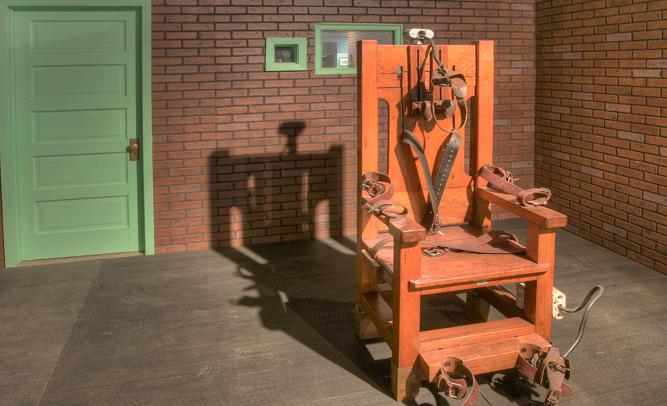BAYPORT, Minnesota – 
Four-time prison escapee Robert Tuck, nicknamed “Hoppin’ Rob,” was diagnosed by prison doctors with Restless Leg Syndrome (RLS) after a fifth prison escape attempt proved futile.
Currently housed at the Minnesota Correctional Facility in Stillwater, Tuck was captured near the main entrance by prison guards, who observed suspicious movements exhibited by the inmate near the facility’s main security fence.
“He was jumping up and down by the main gate,” said Alan Trimble, Director of Security at Stillwater. “At first I thought he was having a kind of seizure or throwing a fit, so I called the prison doctor right away to come take a look at him.”
“It was during our outdoor exercise period and I thought I could get away with it just this once more,” remarked Tuck from the prison infirmary. “I had the opportunity so I thought I’d go for it, but now they got me all chained up here to a bed, even though the doc says it’s not good for me with the condition they told me I have.”
As it turned out, prison medical staff discovered Tuck was suffering from more than just a compulsion to escape confinement; he was diagnosed with RLS, a condition the National Institutes of Health describes as “a nervous system disorder marked by unpleasant sensations affecting the legs.” Symptoms of RLS include spontaneous leg movements, occasional cramping and a constant urge to get up and move around.
“I always thought it was maybe something medical,” said Tuck, “because ever since I was a kid, what I did was to steal things and run away a lot, which is got me in trouble in the first place.”
Tuck’s attorney, Charles Burbridge, is currently examining whether a defense of “RLS Impairment Disorder” can be mounted, with the hope that Tuck, currently serving 5 – 7 years for burglary, would be eligible to receive a reduced sentence and possible transfer to a supervised medical facility.
“If my client could be treated fairly and like a free-range inmate,” explained Burbridge, “he would be able to walk the yard a few more hours a day as part of his therapy. I believe this will reduce his impulse to escape, and make him a better person in the long run.”
For the time being, Tuck remains confined to his infirmary bed and is reportedly in good spirits. “I have high hopes,” said Tuck, while giving the “thumbs up” gesture despite his handcuffs.


































